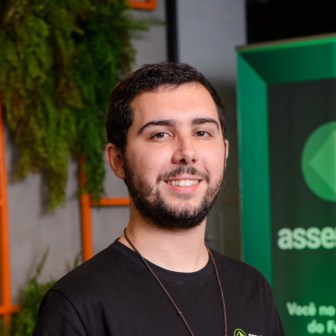Hire Remote Mean Stack Developers
A MEAN stack developer is a type of software developer who specializes in building web applications using four key technologies: MongoDB, Express.js, Angular, and Node.js. Together, these technologies make up the "MEAN" stack.
MEAN stack development allows developers to build web applications using a single programming language, JavaScript, for both the front-end and back-end. This makes developing and maintaining complex web applications quick and easy.
Many businesses are now looking to hire dedicated MEAN stack engineers and developers to build modern web apps that can meet the evolving needs of their customers. MEAN Stack developers can build high-quality, scalable web applications using the MEAN stack technologies.
What to look for when hiring a MEAN Stack Developer?
Technical Expertise
MongoDB: As a NoSQL database, MongoDB is essential for a MEAN stack developer to be proficient in storing and retrieving data.
Express.js: A web applications framework that enables developers to build applications swiftly.
Angular: A front-end JavaScript framework to build dynamic, single-page web applications.
Node.js: A server-side JavaScript runtime used to build scalable, high-performance web applications.
HTML, CSS, and JavaScript: These are essential front-end web development technologies that a MEAN stack developer must be familiar with.
RESTful APIs: Understanding and experience building RESTful APIs is essential for creating scalable and maintainable web applications.
Testing frameworks: A MEAN stack developer should have experience with testing frameworks like Jasmine, Mocha, and Protractor to ensure the quality of their code.
Communication Skills
Effective communication involves not just conveying ideas but also actively listening and understanding the ideas and perspectives of others. This can include participating in meetings and discussions, providing updates on progress and challenges, and sharing technical knowledge and insights with others.
Communication skills also involve using specific language and terminology that all team members, including technical and non-technical stakeholders understand. Communication skills are most important for remote development services.
Collaboration and Teamwork
MEAN stack developers often work collaboratively with other developers, designers, project managers, and stakeholders. Therefore, it's important to look for someone with experience working in a team environment and communicating effectively with others.
A good MEAN stack developer should be able to work collaboratively and be open to different perspectives, feedback, and ideas. They should also be able to work within the parameters of the project and be able to compromise when necessary.
Experience and Portfolio
When hiring a MEAN stack developer, looking for someone with relevant experience and a strong portfolio of past work is important. This can include projects they've completed, code samples they've written, or contributions they've made to open-source projects.
By reviewing a MEAN stack developer's past work, you can understand their technical abilities and whether they would be a good fit for your team and project.
Continual Learning and Professional Development
Finally, looking for a MEAN stack developer committed to continual learning and professional development is important. The software development industry is constantly evolving, and a good, mean stack developer skills and should be able to adapt to new technologies and best practices.
Look for someone who is passionate about software development, stays up-to-date on the latest industry trends and technologies, and is committed to improving their skills and knowledge through continuous learning and professional development opportunities.
Top 5 MEAN Stack Developer Interview Questions
What is a RESTful API & how does it work in MEAN Stack?
This question evaluates the candidate's understanding of RESTful API and how it fits into the MEAN Stack development process. It assesses the candidate's knowledge of web services, API design principles, and the ability to implement RESTful APIs using Node.js & Express.js.
A perfect answer would start by defining RESTful API as a web-based architectural style for creating custom web apps and services that use HTTP to perform CRUD (Create, Read, Update, Delete) operations on data. Rest of the answer should explain that RESTful APIs are designed to be stateless, which means that each request to the API contains all the information needed to complete the request and that the server does not need to maintain any client-specific data.
Additionally, the developer would also highlight the importance of using HTTP methods (GET, POST, PUT, DELETE) to map CRUD operations to API endpoints and how URL parameters and request bodies can be used to pass data between the client and server.
How would you handle errors & exceptions in a MEAN Stack API development project?
This question assesses the developer's understanding of error and exception handling in API development projects. It also evaluates the candidate's ability to identify and resolve errors and exceptions efficiently and ensure the reliability and stability of the API.
A perfect answer to this question should start by discussing the importance of handling errors and exceptions in API development. The candidate should explain that errors and exceptions can occur at any stage of the request-response cycle and can impact the application's user experience, security, and performance.
Expert MEAN Stack developers should be able to provide examples of how they have handled errors and exceptions in previous API development projects and how they have ensured the reliability and stability of the API.
What are some common security concerns in MEAN Stack & how can they be addressed?
This question evaluates the candidate's knowledge of common security threats and vulnerabilities in web applications, and how to implement security measures to prevent them.
A good developer should explain that web apps are vulnerable to different security threats, such as SQL injection, cross-site scripting (XSS), cross-site request forgery (CSRF), and authentication and authorization issues. They should also provide practical steps to resolve these issues.
What are some common challenges for handling external dependencies in MEAN stack web development?
This question demonstrates the candidate's ability to identify potential challenges, develop strategies for managing dependencies, and ensure the reliability and stability of the application. It also indicates the candidate's experience working with external dependencies and their ability to handle any related issues that may arise during the app development and process.
A good MEAN Stack web developer would first acknowledge the importance of external dependencies in development, explaining that they are used to enhance functionality and save time. Then, they would identify some common challenges, such as compatibility issues between dependencies and security risks associated with third-party libraries.
How do you approach optimizing the performance of a MEAN Stack application?
This question tests the MEAN stack developer's knowledge of common performance bottlenecks, tools, and techniques used to optimize performance in web applications.
A dedicated MEAN Stack developer would answer this by explaining some practical steps like using caching to store frequently accessed data, minimizing HTTP requests by concatenating and minifying CSS and JavaScript files, reducing images, and using lazy loading. They would also mention the use of a Content Delivery Network (CDN) to cache and deliver content from servers closer to the user, optimize database queries, and use performance monitoring tools like New Relic and Google Analytics to identify performance bottlenecks.
















